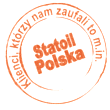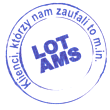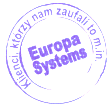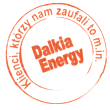Heat pump installer course
About the course at ERGON
Based on our expert knowledge, we have been successfully training new specialists in the labour market for many years now. Our certified course as a heat pump installer allows you to take the state examination before a commission appointed by the UDT in order to gain the necessary qualifications.
Scope of training
The training prepares you to work independently and covers heat pump topics such as:
- selection,
- assembly,
- Installation,
- service,
- regulation,
- maintenance,
- decommissioning of pumps.
We train heat pump installers of leading brands, including.
- Hewalex,
- LG,
- Blaupunkt,
- Panasonic,
- Heiztechnik,
- Viessmann,
- Nibe,
- Novatermia,
- Dimplex,
- Atlantic,
- Daikin,
- Mitsubishi Electronic,
- Stiebel Eltron,
- Waterkotte,
- Gorenje.
Why get an installer qualification?
More and more households and businesses are opting for alternative heating methods. Heat pumps are mainly used to heat domestic water, supply heat to buildings and heaters. After passing an examination before a board set up by the Office of Technical Inspection, participants receive the necessary qualifications to become a heat pump installer.
Training programme
The scope of the training we organise includes such topics as:
- basic information about the device,
- current regulations,
- construction and function of the heat pump,
- pump power,
- use of heat pumps,
- installation selection principles,
- checking for leaks,
- cupellation,
- activities related to the assembly of the refrigeration and hydraulic parts,
- operation of a torque spanner,
- maintenance, preservation and modernisation,
- measuring parameters.
At our Centre, we provide open training for any interested candidate and closed training, which is aimed at organised groups. As part of a closed course, we offer the possibility to travel to the client.
How does a heat pump work?
The purpose of a heat pump is to extract thermal energy from naturally available heat sources, such as air, water or the ground. The very way the pump works is by harnessing the energy load from the environment, exchanging it and transporting it further, through the use of a working medium.
Basic scheme of operation:
- heat generation,
- Heat extraction from the working medium,
- use of the heat generated.
Heat pumps are divided into:
- airborne,
- watery,
- ground.
The different heat pumps differ in the way they extract heat and the type of refrigerant that is used to convert it. The most common refrigerant is R32 and the more environmentally friendly R290 and R744.
Application of heat pumps
Heat pumps are primarily used for domestic or domestic water heating. Their undoubted advantage is that they can be integrated with underfloor heating and radiators. As an alternative to traditional heating systems, heat pumps are steadily gaining in popularity. In urban and suburban areas, this solution is most common. The renewable energy industry continues to grow and the increasing popularity of this solution is resulting in an increased demand for qualified consultants and installers.
Our other training courses
We also provide training courses for operators and maintainers of UDT and TDT equipment. In our offer you can mainly find courses for:
- forklift operator,
- crane maintainer,
- operation of cranes,
- and many others.
We look forward to hearing from you! Our experts remain at your disposal.
Questions and answers
Does the heat pump installer training give you a licence to practise?
No, our courses prepare you to pass the state examination and to obtain the qualifications granted by a commission appointed by the UDT.
What will I learn on the course?
The topics covered in the class give a broad knowledge of the selection and installation of heat pumps, essential for a position as a heat pump installer.
What does gaining a qualification entail?
It enhances the candidate's qualifications and attractiveness on the labour market, as well as providing the opportunity for increased earnings and professional stability.







































